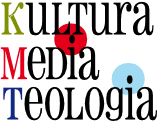
Uniwersytet Kardynała Stefana Wyszyńskiego
w Warszawie
ul. Dewajtis 5
01-815 Warszawa
kmt.uksw.edu.pl
kmt.uksw@gmail.com
ISSN 2081-8971
DOI 10.21697/kmt
Strona archiwalna
Na tej stronie znajdują się numery archiwalne kwartalnika od 1 (2010) do 53 (2023). Począwszy od numeru 54 kwartalnik znajduje się pod tym adresem.
Keywords: disinformation globalization information internet manipulation rumour word freedom of speech
Żaneta Krawczyk-Antońska
Urban legend in the web 2.0. reality and its effect on freedom of speech
Cite: Żaneta Krawczyk-Antońska, Opowieść gminna w odsłonie Web 2.0 i jej wpływ na wolność słowa, "Kultura - Media - Teologia", 2013( 14) nr 3, s. 65-79.
The demand for a contemporary version of urban legend is the result of increasing needs for emotions. The simultaneity of transmission and the multiplicity of media broadcasters has dramatically increased the impact of any information. However, the generally preferred one is one with a potential for sensational news. Such a structure of the supply and demand of information affects the process of using freedom of speech, which, combined with anonymity and the lack of responsibility for comments made, repeatedly leads to the ideals of these values being distorted. Equalising an opinion and a fact, rumour and truth, using tragic human stories as a mass consumption means teaches thinking without a the second thought and oversimplifies the level of public debate. What is, consequently, the real significance of rumour in the web 2.0 culture? In what way does it deform approach to freedom and civil society liberties?
About authors
mgr Żaneta Krawczyk-Antońska
ORCID: (nieznany)
Issues
- KMT53: Literature - Media - Language
- KMT52: In the Field of Journalism
- KMT51: Liturgy in the virtual world
- KMT50: In the field of theology, communication and media culture
- KMT49: Communication and Media
- KMT48: Contemporary paradigms of social communication
- KMT47: We celebrate our 10th anniversary
- KMT46: In the field of politics, communication and media
- KMT45: Wisdom and communication in the present day
- KMT44: Search for good, truth and beauty
- KMT43: Indentity contexts
- KMT42: Cultural Identity
- KMT41: Madia in a pandemic
- KMT40: Communication and education
- KMT39: Communication in media, culture and theology
- KMT38: Forms of Communication
- KMT37: Image in media
- KMT36: Values on the Net
- KMT35: Happiness - concepts and visualizations
- KMT34: Happiness - concepts and symbols
- KMT33: Culture and media: transformations
- KMT32: Images and simulacra
- KMT31: Escaping Sacrum
- KMT30: Public relations in non-profit institutions
- KMT29: The hate and trolling on the Internet
- KMT28: The Media, Rituals and Lifestyle
- KMT27: Interdisciplinary discourses
- KMT26: The Absolute (not)present
- KMT25: Hating and trolling on the Internet
- KMT24: Socio-cultural communication: between dialogue and social engineering
- KMT23: Monastic Spirituality
- KMT22: The Faces of the Cinema
- KMT21: Media, Relationships, Communication
- KMT20: Theology of Mass Media
- KMT19: Edith Stein – Saint and Feminist?
- KMT18: Advertising, marketing and law
- KMT17: The Truth of time, the Truth of the Screen
- KMT16: Culture and communication
- KMT15: The media and education
- KMT14: Interdisciplinary discourses
- KMT13: Manipulation in the media
- KMT12: Communications at the Council
- KMT11: Media and the sacrum
- KMT10: Religion and media
- KMT9: Media artifacts
- KMT8: Cultural spaces
- KMT7: Identity and its foundations
- KMT6: Media, culture, money and...
- KMT5: Truth in the media?
- KMT4: Supermarket of the culture
- KMT3: Media masquerade
- KMT2: Rev. prof. Antoni Lewek (1940-2010) - life and work
- KMT1: Thresholds for (post)modernity
Links
- Uniwersytet Kardynała Stefana Wyszyńskiego w Warszawie
- Wydział Teologiczny UKSW
- Instytut Wiedzy o Kulturze
- Instytut Edukacji Medialnej i Dziennikarstwa
Other info
We use cookies for traffic measurment. Privacy agreement (in polish).